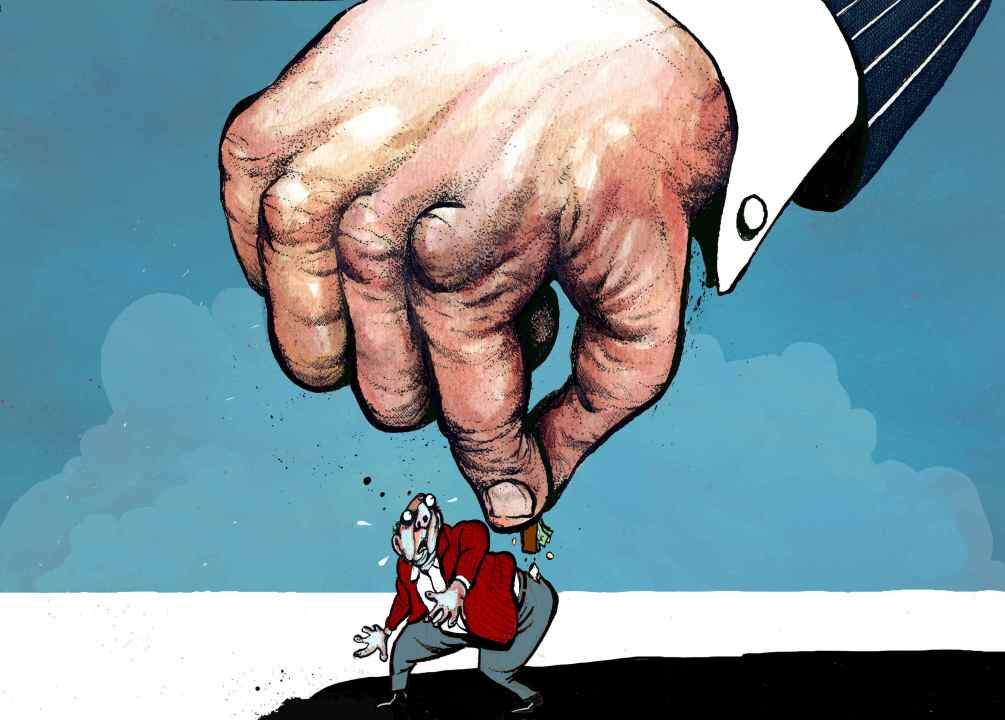If I were Rachel Reeves, my absolute priority would be to incentivise high earners to work hard for as long as possible. After all, the 10 per cent of taxpayers with the largest incomes contribute over 60 per cent of all income tax receipts. So, keeping them onside and busy would, you’d have thought, be a no-brainer.
With Labour’s changes, high earners, far from concentrating on work, are instead busy calculating how they can reduce their net worth
But Reeves and co. clearly think differently, and have mandated that defined-contribution pensions, typical throughout the private sector, though not the public sector, will, from April 2027, be subject to inheritance tax. By doing so, they are actually encouraging high earners to retire early and contribute nothing to the exchequer at all.
The impact has been enormous. Consider a successful person in their 50s, perhaps a lawyer, consultant, senior manager or small-business owner. Until Labour came in, there was a reasonable incentive for them to carry on working for as long as possible, putting aside money for their future, knowing that, if they didn’t spend it, anything left in their pension fund could be passed on to their heirs free of inheritance tax.
With one fell swoop, Rachel Reeves’s budget stopped this, and a major incentive for work has disappeared. That lawyer or consultant now finds that they are not only taxed at 40 per cent (or more) on income, but anything saved into their pension, excluding the tax-free lump sum, is taxed when they take it out, taxed again when they pass it onto their heirs, and again when their heirs start using it.
No wonder so many successful people are considering early retirement. With Labour’s changes, high earners, far from concentrating on work, are instead busy calculating how they can reduce their net worth. There’s simply no point anymore in working hard and building up a bigger estate only to have it obliterated by tax when they die.
Chartered Financial Planner, Jason Witcombe of Empower Partners, told me: ‘Quite a few of my clients in their mid-50s and early 60s, who are currently working, are now considering taking early retirement or going part time. If you’re confident you’ve built up sufficient assets for a reasonable retirement and won’t run out of money, the incentive to save more has greatly reduced. If your estate is already over the inheritance threshold and the inclusion of your pensions will further exacerbate this, your focus is likely to switch to spending. Few people want to go to the grave with “spare” money that then just gets clobbered by tax.’
Exactly. And these people are not multi-millionaires, who, as we all know, are already leaving the UK in their droves. They are the relatively successful people you see up and down the country every day of the week, going about their business, earning well and paying huge wodges of tax to fund public services. Except they may not be for much longer.
I, too, have friends in their 50s who have either decided to give up work, or just to work only so much to earn no more than the higher-rate tax threshold. One of them, a solicitor, has thought about taking other paid roles that would involve working another day each week, but decided against, given that he’d be paying higher rate tax plus national insurance on the additional income. However, if the Chancellor were to raise the higher rate tax threshold, he’d work that extra day and she’d raise more tax from him overall.
I just don’t get Labour. They knew when they got into power that there is an epidemic of people leaving the workforce early and vowing never to go back. In fact, Just Group’s ‘Countdown to Retirement’ survey in April 2024 revealed that around two-thirds of those aged over 55 retired before reaching the state pension age. Okay, some have done so because of illness or caring responsibilities. But many, usually the wealthiest, and still in their prime, could be working hard and paying tax to fund public services. Yet Reeves and her colleagues are doing the exact opposite of what’s so desperately needed to encourage them to work.
Even I, a non-economist, know about the Laffer curve. Even I, generally pretty bored by financial matters, know that there comes a point where the more the government taxes people, the less tax it collects. But you’d be forgiven for thinking Labour has never heard of it.
So, I don’t blame high earners for quitting, or at least considering it. The Chancellor obviously views them as ripe for a good squeezing – till the pips squeak, as Denis Healey might say. Fine. Go ahead Rachel Reeves. But please don’t start crying when your sums don’t add up.








Comments